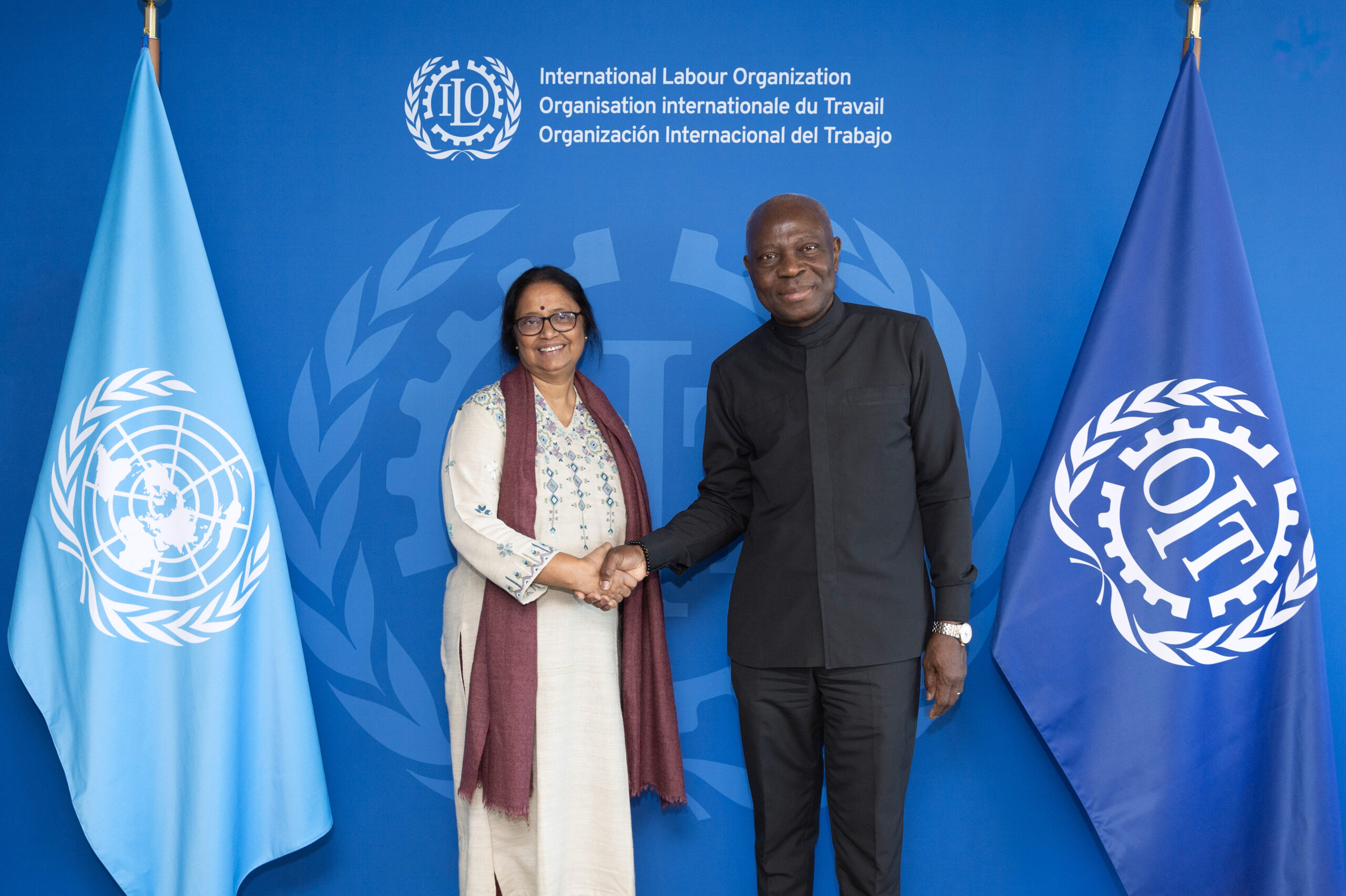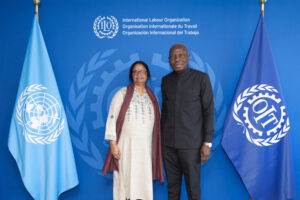



Recently, in a meeting with the 11th Director General of the ILO, Gilbert F. Hungbo, SEWA’s General Secretary, Jyotiben Macwan, had the honor to engage in a meaningful dialogue on Future of Work for informal sector women workers and Climate Action. This meeting marked a significant moment for SEWA, a pioneering union of over 2.9 million poor, informal sector women workers that has advocated for full employment and self-reliance for over five decades.
Jyotiben highlighted SEWA’s innovative joint action of struggle and development – a model that integrates the strength of unionism and collective bargaining power with the cooperative movement. This dual approach has empowered countless women, bringing them a voice and visibility to their work while fostering economic independence and asset creation through worker-owned and managed initiatives and enterprises like the SEWA Cooperative Bank—established in 1974 as the first of its kind for poor women; RUDI, an agribusiness enterprise managed by over 250,000 smallholders and many more.
With over 35-40 % of SEWA’s membership comprising young women keen on leveraging modern technology, Jyotiben underscored SEWA’s commitment to reskilling, upskilling and skill diversification. These efforts ensure members are well-equipped for the evolving employment opportunities in an increasingly tech-savvy world. SEWA is also at the forefront of deploying technology that enhances the lives and livelihoods of its members and generates new and innovative employment opportunities for the youth, without replacing traditional work. Innovations such as customized mobile apps for membership management, financial transactions and health monitoring, alongside green tech solutions like solar precision irrigation, biogas etc. exemplify SEWA’s approach to make work smarter and more dignified.
But when we are talking about Future of Work, delving on the most pressing issue of climate change – a significant disruptor of lives and livelihoods for the poor. is unavoidable. Therefore, amidst these advancements, SEWA has galvanized its 2.9 million members to commit to climate action through the “Building Cleaner Skies” campaign. This campaign educates members on climate change, its impacts and promotes resilient practices to safeguard their future.
The conversation with Director General Hungbo was not only a reflection of SEWA’s enduring mission but also an opportunity to illustrate how SEWA’s grassroots strategies provide valuable insights for global labor unions, particularly in similar contexts across the Global South – especially in the African sub-continent. He praised SEWA’s efforts in bringing visibility, voice, and validity to the informal sector’s work, acknowledging the potential of SEWA’s model as a blueprint for similar communities globally.
In concluding this impactful exchange, Jyotiben reinforced that SEWA does not differentiate between formal and informal work; it champions the recognition of all work as the cornerstone of societal cohesion. However, with over 93% of the global workforce in the informal economy, SEWA advocates for these workers to be central in all policy-design and implementation processes, ensuring their significant economic contributions are recognized and supported.
As we move forward, SEWA continues to strengthen the fabric of society by weaving together the threads of collective strength, equity, sustainability, and resilience, making every worker’s contribution visible and valuable.